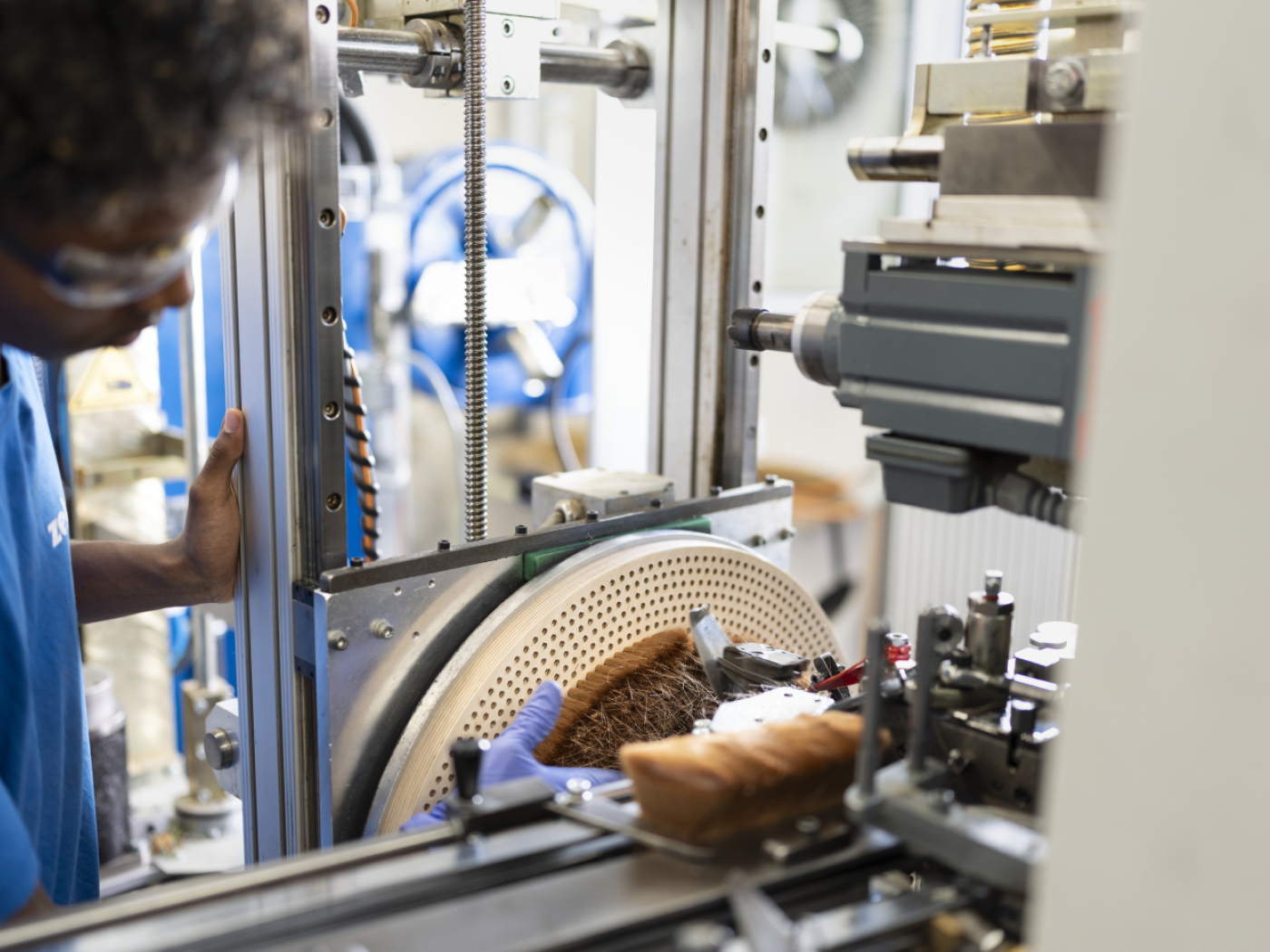
Swiss study examines why women and men choose different professions

Young women and men in Switzerland have similar job expectations when it comes to salary and working hours. According to a new study, the fact that there are still prevalently female and male professions is down to the nature of the job.
+Get the most important news from Switzerland in your inbox
The findings of a new study by the University of Bern published on Thursday contradict common assumptions about the importance of workplace characteristics, such as the family-friendliness of a job or salary, when people choose professions.
For the study, which was published in the journal Socio-Economic Review, a research team from the University of Bern and the University of St. Gallen tested over 2,000 eighth-graders shortly before they chose an apprenticeship. In an experiment, the pupils had to choose between fictitious job descriptions that differed in eight characteristics: five related to the required skills – such as technical knowledge, creativity or social interaction – and three to classic job characteristics such as salary, part-time options or social relevance.
+ Gender wage gap is shrinking in Switzerland – slowly
The results show there are hardly any differences between the genders when it comes to pay, working hours or the meaningfulness of work. There are, however, clear differences in the skills required. In the experiment, the girls avoided professions with a strong technical focus, while the boys found these attractive. Creative or social tasks, on the other hand, appealed to girls in particular.
Growing inequalities
In an increasingly digitalised world of work, in which technological skills determine income and career, the lower preference of young women for technology-intensive professions will reinforce existing inequalities, according to the University of Bern.

More
Why it’s so hard to be a working woman in Switzerland
The researchers say that stereotypes need to be scrutinised in order to break down gender-specific career-choice patterns. The results make it clear that gender-typical attributions related to ability are already prevalent in adolescence.
Translated from German with DeepL/gw
We select the most relevant news for an international audience and use automatic translation tools to translate them into English. A journalist then reviews the translation for clarity and accuracy before publication.
Providing you with automatically translated news gives us the time to write more in-depth articles. The news stories we select have been written and carefully fact-checked by an external editorial team from news agencies such as Bloomberg or Keystone.
If you have any questions about how we work, write to us at english@swissinfo.ch.

In compliance with the JTI standards
More: SWI swissinfo.ch certified by the Journalism Trust Initiative






























You can find an overview of ongoing debates with our journalists here . Please join us!
If you want to start a conversation about a topic raised in this article or want to report factual errors, email us at english@swissinfo.ch.